
Journal of Experimental Zoology Part A-Ecological and Integrative Physiology
Scope & Guideline
Bridging disciplines to illuminate organismal biology.
Introduction
Aims and Scopes
- Ecological Physiology:
Research that explores how physiological processes influence ecological interactions and adaptations in various animal species. - Behavioral Ecology:
Investigations into how animal behavior is shaped by ecological factors, including habitat, resource availability, and interspecies interactions. - Thermal Physiology:
Studies examining how temperature affects physiological processes, particularly in ectotherms, and how these processes influence behavior and survival. - Endocrinology and Reproductive Biology:
Research focused on the hormonal regulation of physiological processes and reproductive strategies, including studies on stress responses and reproductive adaptations. - Physiological Responses to Environmental Stressors:
Investigations into how organisms respond physiologically to environmental changes such as pollution, climate change, and habitat modification. - Comparative Physiology:
Comparative studies that examine physiological traits across different species, providing insights into evolutionary adaptations and ecological strategies.
Trending and Emerging
- Impact of Climate Change on Physiology and Behavior:
There is an increasing emphasis on understanding how climate change affects physiological processes and animal behavior, reflecting global environmental concerns. - Microbiome and Host Interactions:
Research exploring the role of gut microbiota on host physiology and behavior is gaining traction, highlighting the importance of symbiotic relationships in ecological contexts. - Stress Physiology and Health:
A growing body of work focuses on stress responses in animals, examining how environmental and anthropogenic stressors affect health, reproduction, and survival. - Integrative Approaches to Animal Studies:
An emerging trend towards integrative methodologies that combine ecological, physiological, and behavioral perspectives to understand complex biological systems. - Physiological Adaptations to Urbanization:
Research investigating how urban environments influence physiological processes and adaptations in wildlife is increasingly prominent, addressing the impacts of habitat modification.
Declining or Waning
- Conventional Toxicology Studies:
Research primarily focused on the toxicological effects of environmental contaminants on model organisms has decreased, possibly due to a shift towards more integrative approaches that consider ecological and physiological contexts. - Habitat-Specific Adaptation Studies:
While still relevant, the emphasis on studies that focus solely on adaptations to specific habitats has diminished in favor of broader ecological and physiological integrative studies. - Traditional Morphological Studies:
The focus on purely descriptive morphological research has waned, with a growing preference for studies that link morphology to functional and ecological outcomes.
Similar Journals

Journal of Comparative Physiology B-Biochemical Systems and Environmental Physiology
Pioneering Research at the Intersection of Life SciencesJournal of Comparative Physiology B-Biochemical Systems and Environmental Physiology, published by SPRINGER HEIDELBERG in Germany, stands at the forefront of research in the fields of physiology, biochemistry, and ecological systems. With a commitment to fostering interdisciplinary communication, this journal has been a vital resource since its inception in 1974, converging scientific exploration through the lens of biochemical mechanisms and environmental adaptations in animal systems. Renowned for its rigorous peer-review process, it has achieved impressive rankings, including Q2 in Animal Science and Zoology and Ecology, Evolution, Behavior and Systematics, reflecting its substantial impact within these disciplines. The journal aims to disseminate cutting-edge research that advances our understanding of physiological and biochemical processes while addressing contemporary environmental challenges. While currently operating on a traditional access model, the journal's contributions are crucial for researchers, professionals, and students seeking profound insights into the complex interactions between organisms and their environments.
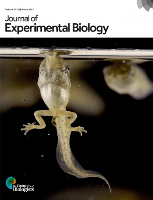
JOURNAL OF EXPERIMENTAL BIOLOGY
Pioneering Insights in Experimental BiologyJOURNAL OF EXPERIMENTAL BIOLOGY, published by COMPANY BIOLOGISTS LTD, stands as a cornerstone in the fields of Animal Science, Aquatic Science, Ecology, Insect Science, and Physiology. With a rich history dating back to 1945, this esteemed journal has continually provided a platform for high-quality research, evidenced by its impressive Q1 rankings across multiple categories in the 2023 Journal Citation Reports. Located in the United Kingdom, it serves an international audience, offering critical insights and advancements in various biological sciences. As a non-open access journal, it provides rigorous peer-reviewed articles that contribute profoundly to our understanding of biological processes and their implications. With an extensive reach among researchers, practitioners, and academia, the JOURNAL OF EXPERIMENTAL BIOLOGY is not only a repository of knowledge but also a catalyst for ongoing research and innovation in experimental biology.

Conservation Physiology
Advancing ecological insights for a sustainable future.Conservation Physiology is a premier scholarly journal published by Oxford University Press, dedicated to advancing the understanding of physiological processes in the context of conservation and environmental science. Established in 2013 as an Open Access platform, it has rapidly gained recognition within the academic community, featuring research that spans various critical areas such as ecological modeling, management, monitoring, policy, and law. With its impressive impact in the field, Conservation Physiology holds a notable rank in Scopus and boasts quartile distinctions, reflecting its influence and contribution to Nature and Landscape Conservation. This journal serves as a vital resource for researchers, professionals, and students engaged in conservation efforts, providing them with a comprehensive understanding of how physiological insights inform effective conservation strategies and policies. Through its commitment to open access, Conservation Physiology ensures that vital research is readily available, fostering collaboration and innovation in the pursuit of global ecological sustainability.

BMC Zoology
Pioneering research in conservation and ecology.BMC Zoology, published by BMC, is a distinguished open-access journal that has been advancing the field of zoological research since its inception in 2016. With an impressive Q2 ranking in both Animal Science and Zoology categories as of 2023, the journal occupies a significant position in the academic landscape, engaging a global readership dedicated to the exploration of animal biology. Based in the United Kingdom, BMC Zoology prides itself on providing a platform for innovative research, fostering collaboration among scientists, and facilitating access to high-quality scholarly articles. Researchers and practitioners in zoology can benefit from its extensive repository of articles that span various areas including conservation, ecology, and evolutionary biology. As an essential resource for scholars and students alike, BMC Zoology commits to enhancing the dissemination of knowledge in the zoological sciences through its open-access model, ensuring widespread access to cutting-edge research findings.
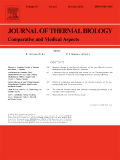
JOURNAL OF THERMAL BIOLOGY
Fostering Insights into Temperature's Role in Life ProcessesJOURNAL OF THERMAL BIOLOGY, published by PERGAMON-ELSEVIER SCIENCE LTD, is a leading international journal dedicated to the interdisciplinary study of thermal biology, exploring the impact of temperature on biological systems. Established in 1975 and continuing its vital contributions through 2024, the journal has consistently ranked in the upper quartiles of its categories, notably achieving Q1 in Agricultural and Biological Sciences, Q2 in Biochemistry, and Q3 in both Developmental Biology and Physiology as of 2023. With an impressive Scopus ranking reflecting its influence and reach within key biological sciences fields, this journal serves as an essential platform for researchers, professionals, and students interested in thermal impacts on biological processes. While the journal does not offer open access, it remains a pivotal resource through its robust peer-reviewed content, fostering academic discourse and advancing knowledge at the intersection of thermal dynamics and biological research.

Frontiers in Physiology
Advancing the frontiers of physiological knowledge.Frontiers in Physiology, published by FRONTIERS MEDIA SA, is a leading open-access journal that has been at the forefront of physiological research since its inception in 2010. As a reputable publication based in Switzerland, it aims to foster the dissemination of groundbreaking findings across various domains of physiology, engaging a global audience of scholars and practitioners. With a commendable Q2 ranking in the fields of both general physiology and medical physiology for 2023, this journal stands out in its field, achieving a significant Scopus rank of #32/113 in medical physiology and #58/193 in biochemistry, genetics, and molecular biology. Frontiers in Physiology not only commits to maintaining high scholarly standards but also ensures that all its articles are freely accessible, thereby promoting collaborative knowledge exchange. With a clear focus on advancing our understanding of physiological processes, the journal plays a crucial role in the development of innovative approaches to health and disease, making it an essential resource for researchers, professionals, and students alike.
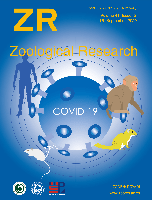
ZOOLOGICAL RESEARCH
Fostering Dialogue in the World of Zoological ScienceZoological Research, published by Science Press, stands as a premier open-access journal in the fields of animal science, zoology, and ecology. Since its inception in 1980, it has fostered an inclusive platform for innovative research and dialogue within the scientific community, enabling researchers from across the globe to share their findings and insights. The journal's significant impact is underscored by its classification in the Q1 quartile across multiple categories, including Animal Science and Zoology, Ecology, and Nature Conservation for 2023, as well as its impressive rankings within Scopus, placing it in the top tier of its respective fields. Situated in Beijing, China, Zoological Research not only contributes to advancing knowledge but also emphasizes the critical importance of conservation practices in today’s rapidly changing ecosystems. With its commitment to open access, researchers, educators, and students alike benefit from immediate, unrestricted access to vital scientific information, making it an essential resource for anyone involved in the biological sciences.
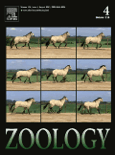
ZOOLOGY
Exploring innovative insights in zoology.ZOOLOGY, an esteemed journal published by Elsevier GmbH, stands at the forefront of research in the Animal Science and Zoology fields. With a notable impact factor and recognized as a Q1 category journal in its discipline, ZOOLOGY is highly regarded among researchers, ranking #98 out of 490 in Scopus rankings. Founded in 1994 and continuing through to 2024, the journal aims to publish cutting-edge, peer-reviewed articles that contribute significantly to the understanding of zoological sciences. Based in Munich, Germany, ZOOLOGY provides both subscription and open access options, ensuring that influential research reaches a wider audience. It serves as an essential platform for disseminating innovative findings, connecting scholars globally, and fostering interdisciplinary collaboration to advance zoological knowledge.
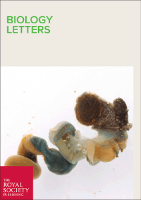
Biology Letters
Exploring the frontiers of biological inquiry with precision.Biology Letters, published by the esteemed Royal Society, stands at the forefront of research in the field of biological sciences, with a strong emphasis on innovative studies that bridge gaps across disciplines. Since its inception in 2005, the journal has garnered significant recognition, achieving a remarkable Q1 ranking in Agricultural and Biological Sciences (miscellaneous) and a percentile of 88th in the same category, according to Scopus rankings. Released in the United Kingdom, the journal offers a platform for authors to share concise research findings and theoretical perspectives that contribute meaningfully to the advancement of biological inquiry. Although not open access, the journal remains highly regarded in the academic community for its rigorous peer-review process and impactful content, making it an invaluable resource for researchers, professionals, and students dedicated to exploring the complexities of biology. With an ongoing commitment to excellence, Biology Letters continues to shape the future of biological sciences.
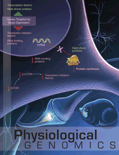
Physiological Genomics
Unlocking the Genetic Mysteries of PhysiologyPhysiological Genomics is a prestigious scholarly journal published by the American Physiological Society, dedicated to advancing the understanding of the genetic underpinnings in physiology. With an ISSN of 1094-8341 and an E-ISSN of 1531-2267, this journal serves as a vital platform for researchers exploring the intersection of genetics and physiological processes. As of 2023, it enjoys a respectable impact factor, particularly standing strong in the Q2 quartile in both Genetics and Physiology categories, illustrating its importance within a competitive landscape. With an impressive rank of #69 out of 193 in Biochemistry, Genetics, and Molecular Biology - Physiology, and #128 out of 347 in Genetics, it reflects a robust commitment to quality research. Committed to fostering innovation, Physiological Genomics provides comprehensive access to groundbreaking studies from 1999 to 2024 and remains a quintessential resource for researchers, professionals, and students alike aiming to enhance their understanding of physiological genomics.